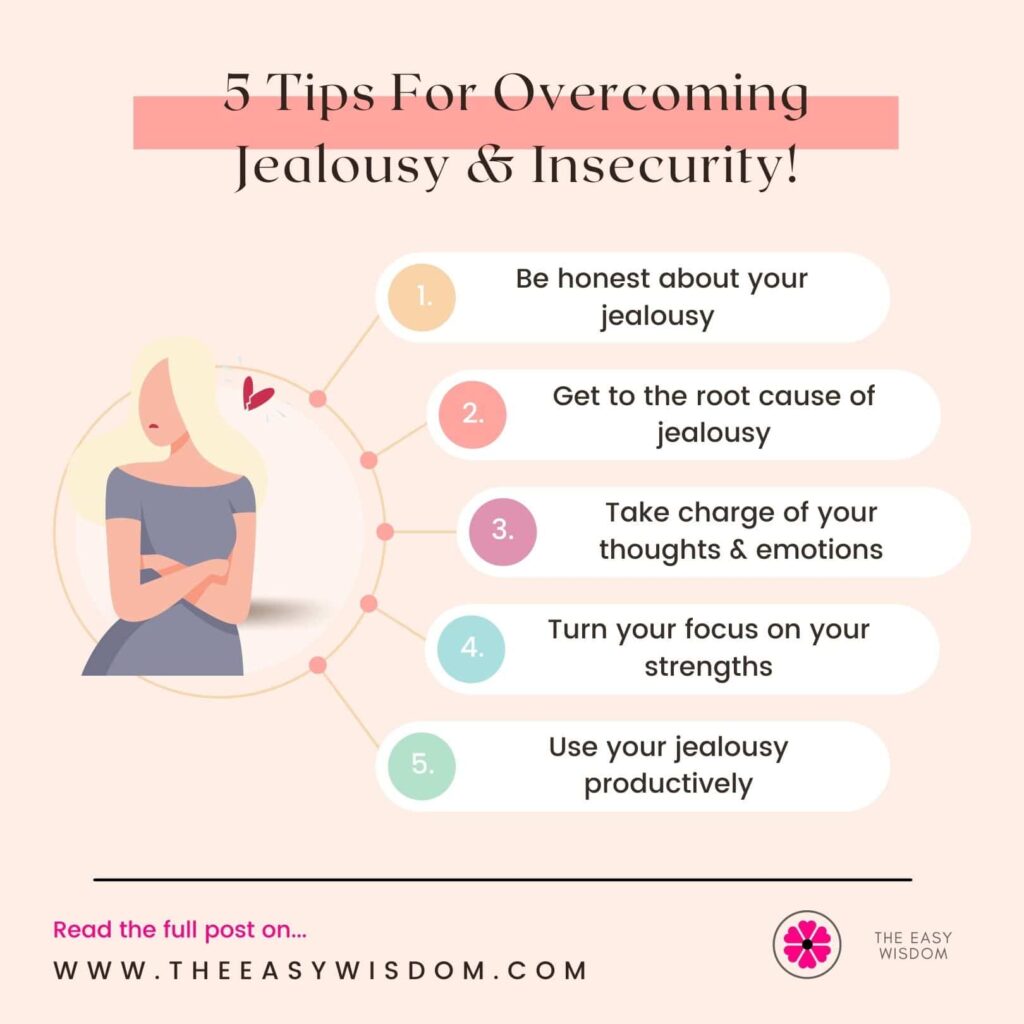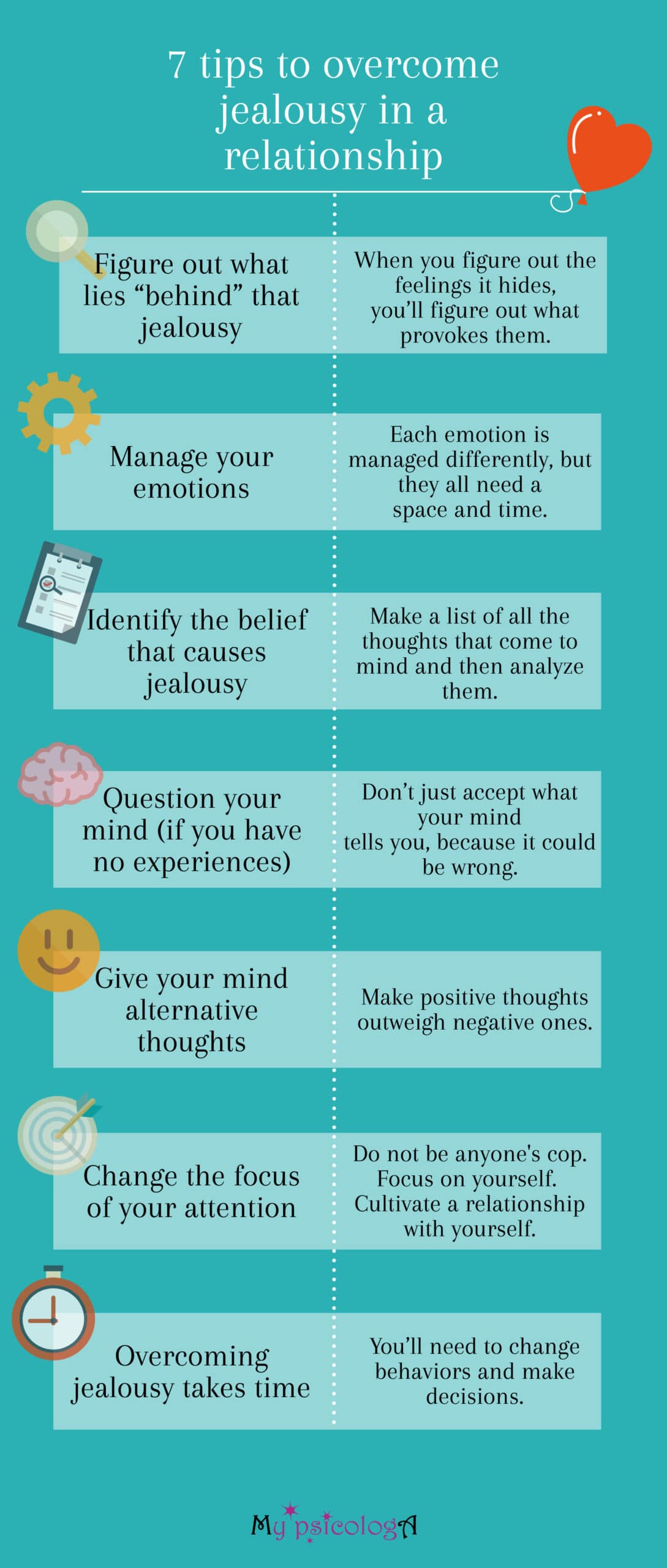
Understanding Jealousy in Relationships
Definition of Jealousy
Jealousy is a complex emotional response that arises from the fear of losing something valuable, often regarding romantic relationships. It can manifest as insecurity or distrust when one partner feels threatened by an external factor, whether it be a person or circumstance.
Causes of Jealousy
Several factors contribute to jealousy in relationships, including:
- Insecurity: Low self-esteem can prompt individuals to fear their partner’s attraction to others.
- Previous Experiences: Past betrayals can heighten suspicions and mistrust in current relationships.
- Environmental Factors: Social media exposure to others’ lives can make comparisons inevitable.
Understanding these causes is essential to address jealousy effectively.
Impact of Jealousy on Relationships
The effects of jealousy can be profound and multifaceted:
- Emotional Distress: Both partners may experience stress, anxiety, and anger.
- Communication Breakdown: Jealousy can lead to misunderstandings and conflict.
- Strain on Trust: Continuous jealousy can erode the foundation of trust in relationships.
Being aware of jealousy’s impact allows couples to navigate these challenging emotions together.

Identifying Signs of Jealousy
Behavioral Patterns
Recognizing behavioral changes can be a key indicator of jealousy. Examples include:
- Increased surveillance: Checking your partner’s phone or social media accounts.
- Overreacting: Unnecessary anger triggered by innocent interactions.
- Withdrawal: Pulling away or becoming less engaged when friends are around.
These patterns often signal deeper emotional issues.
Communication Patterns
Sometimes, jealousy alters how partners communicate:
- Defensive responses: Dismissive or argumentative replies when discussing friends or activities.
- Questioning: Constantly asking about whereabouts or who your partner is with.
- Neglecting to listen: Focusing more on personal concerns rather than engaging in conversation.
Being aware of these shifts can help address underlying issues.
Emotional Reactions
Emotional reactions to jealousy can vary widely, often surfacing as:
- Anxiety: Worrying excessively about the relationship’s stability.
- Resentment: Feeling bitterness toward your partner or perceived threats.
- Sadness: A profound sense of loss can accompany feelings of jealousy.
Identifying these signs is the first step toward fostering healthier interactions and communication.

Communicating Effectively About Jealousy
Importance of Open Communication
Open communication is vital in addressing jealousy. It creates a safe space where both partners can express their feelings without fear of judgment. Establishing regular check-ins to discuss emotions can reduce misunderstandings and build trust.
Active Listening Techniques
Applying active listening techniques can enhance communication:
- Reflective listening: Paraphrase what your partner says to show understanding.
- Nonverbal cues: Maintain eye contact and nod to indicate you’re engaged.
- Avoid interrupting: Allow your partner to express feelings fully before responding.
Expressing Vulnerability
Expressing vulnerability fosters deeper connections. Share your fears and insecurities regarding jealousy. For example, you might say, “I feel insecure when you spend time with friends, and it makes me anxious.” This honesty encourages vulnerability from your partner, promoting empathy and reassurance.
Overall, creating an open dialogue about jealousy paves the way for a healthier relationship.

Building Trust and Security
Strengthening Trust in the Relationship
Strengthening trust is essential for overcoming jealousy. One effective way is through consistent behaviors that reinforce reliability. For instance, regularly keeping promises and being transparent about your actions can reinforce your partner’s sense of security.
Creating a Secure Environment
Creating a secure environment involves:
- Encouraging openness: Let your partner know they can express their fears without judgment.
- Practicing reassurance: Offer words of affirmation and support to build confidence.
- Engaging in shared activities: Strengthen your bond by participating in fun, trust-building experiences together.
Setting Boundaries
Setting clear boundaries is vital in preventing jealousy:
- Define acceptable interactions: Agree on what is comfortable concerning friendships and external relationships.
- Communicate your needs: Share what makes each partner feel safe and respected.
- Regularly revisit boundaries: As relationships evolve, reassess and adapt boundaries to maintain balance.
By focusing on trust, security, and boundaries, couples can create a solid foundation for a healthy, long-lasting relationship.

Managing Jealousy in Healthy Ways
Practicing Self-Awareness
One of the first steps in managing jealousy is practicing self-awareness. Recognizing your triggers—such as specific situations or behaviors—can help you understand the root of your feelings. For example, if you feel jealous when your partner hangs out with certain friends, take a moment to ask yourself why.
Developing Emotional Regulation Skills
Developing emotional regulation skills is crucial for managing jealousy:
- Mindfulness techniques: Practice deep breathing or meditation to calm anxious thoughts.
- Journaling: Write down your feelings to better understand and process them.
- Cognitive reframing: Challenge negative thoughts and replace them with constructive ones.
These techniques can transform overwhelming emotions into manageable ones.
Seeking Support and Guidance
Don’t hesitate to seek support and guidance from trusted friends or professionals. Sharing feelings with a friend can provide perspective and alleviate burdens. If jealousy becomes unmanageable, talking to a therapist can equip you with coping strategies tailored to your situation. This support network plays a vital role in maintaining emotional health and relationships.
By practicing self-awareness, honing emotional regulation skills, and seeking help, individuals can effectively manage jealousy in a healthy way.

Resolving Jealousy Issues
Addressing Root Causes
To effectively resolve jealousy issues, it’s crucial to address the root causes. This might involve reflecting on past experiences, such as relationships marked by betrayal or insecurity. Engaging in honest conversations with your partner about these feelings can lead to a deeper understanding of each other’s triggers.
Conflict Resolution Strategies
Implementing conflict resolution strategies can also help:
- Stay calm: Approach discussions with a cool head to avoid escalation.
- Use ‘I’ statements: Express feelings using “I feel” to minimize blame and encourage dialogue.
- Focus on solutions: Instead of dwelling on the problem, work together on positive action steps.
These strategies create a collaborative atmosphere for resolving issues.
Seeking Professional Help
If jealousy becomes overwhelming, seeking professional help may be necessary. A therapist can provide tailor-made strategies and a safe environment to explore deeper emotional issues.
Engaging in therapy not only helps manage jealousy but also equips couples with tools to strengthen their relationship, paving the way for healthier dynamics moving forward. By addressing root causes, employing conflict resolution strategies, and considering professional guidance, couples can successfully navigate and resolve jealousy issues.

Fostering a Strong and Trusting Relationship
Cultivating Mutual Respect
Fostering a strong and trusting relationship starts with cultivating mutual respect. This means honoring each other’s feelings, opinions, and boundaries. For instance, actively listening when your partner speaks shows that you value their perspective, fostering a deeper connection.
Appreciating Each Other
Regularly appreciating each other can also enhance trust. Simple gestures like verbal affirmations or acts of kindness can go a long way:
- Compliments: Acknowledge each other’s strengths and accomplishments.
- Quality time: Spend dedicated time together to reinforce your bond.
- Acts of service: Small gestures that demonstrate thoughtfulness can make a big impact.
Growing Together
Finally, focus on growing together. Set shared goals, whether they are related to travel, hobbies, or personal development. Supporting each other’s ambitions helps cultivate a sense of teamwork within the relationship.
By prioritizing mutual respect, appreciation, and growth, couples can create a solid foundation for a strong, trusting relationship that can withstand life’s challenges. These elements act as the glue that binds partners together, making their connection more resilient and fulfilling.

Conclusion
Recap of Handling Jealousy in Relationships
In summary, handling jealousy in relationships involves understanding its roots, recognizing signs, and maintaining open communication. By practicing self-awareness and emotional regulation, couples can navigate jealousy effectively. Addressing issues through conflict resolution and seeking professional help when necessary can further strengthen the relationship.
Final Thoughts on Building Healthy Relationships
Ultimately, fostering mutual respect, appreciation, and shared growth are key components of building a healthy relationship. Remember, every partnership faces challenges, but with commitment and honest dialogue, couples can cultivate a deeper connection that withstands the test of time.
By prioritizing these principles, couples can create an environment of love and trust that not only mitigates jealousy but also enriches their relationship overall.
